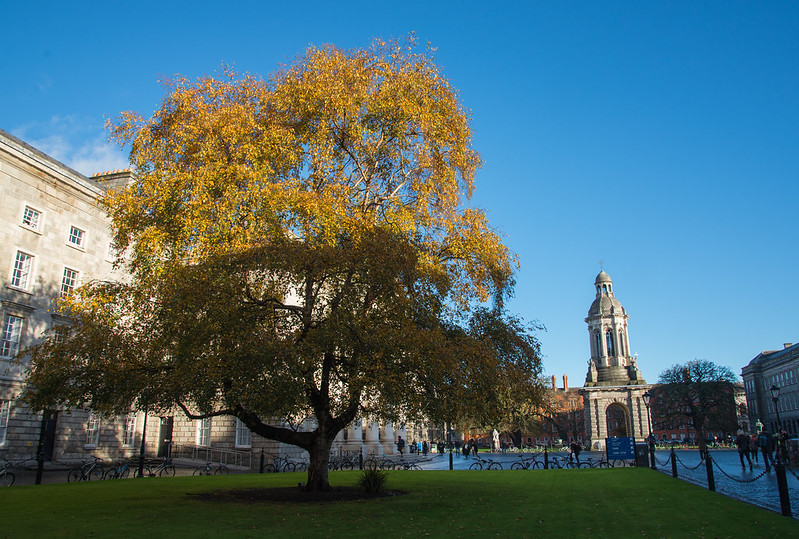A resident on campus who claims to be displaying coronavirus symptoms has been told to vacate their rooms to make way for a student moving onto campus today.
Despite informing the Accommodation Office that they had been instructed to self-isolate by the College Health Service, the resident was told to make alternative living arrangements.
According to emails seen by The University Times, the resident informed Residential Administrator and Assistant Junior Dean Hazel Kinmonth that they had developed cough and flu-like symptoms on September 6th.
The resident, who spoke on the condition of anonymity due to the sensitive nature of their health situation, had been due to move out of their campus rooms yesterday.
On September 10th, the resident told Kinmonth that, since they would be self-isolating until they received a negative coronavirus test result, they would be unable to move out as planned.
“Unfortunately, as per the GP’s advice I don’t think I can relocate to a new place until the result is negative because that would put other people at risk in case I am positive”, they wrote in an email.
Noting that “there could be no further extensions” beyond September 13th, Kinmonth explained that a new resident was due to move into the room.
“Your room MUST be vacated on 13th September, so that it can be cleaned first thing on the morning of 14th September for the incoming resident”, Kinmonth wrote. “Unfortunately you will have to make alternative arrangements.”
In a series of emails over the course of the week, Kinmonth added that the resident, who was originally due to vacate their campus accommodation in May, had already received a number of extensions on their tenancy. The resident completed reassessment examinations in recent weeks and had been granted an extension until the end of August, a further extension until September 6th, and a “very special” extension until September 13th, Kinmonth said.
In a later email, Kinmonth said that, since the resident’s course was now completed, they were “not entitled to be living in campus accommodation”, adding that the resident was no longer covered by Trinity’s insurance.
Despite a request from the resident, Kinmonth said that the Accommodation Office would also be unable to assist the resident with their move.
“However, I would suggest that you book a taxi with a screen to move you to your new accommodation”, Kinmonth said.
The resident said that they had “actively sought accommodation until falling ill when people with flats and room to rent, not surprisingly would not allow me to visit due my symptoms”.
“I have no accommodation but with a covid 19 negative screen will willingly move to a B&B and put my belongings into storage, which I already told you was the plan last weekend.”
They added: “Unfortunately you leave [me] with no option but to simply to stay in my room at present.”
The resident, who is continuing to self-isolate in their campus room, was due to receive a coronavirus test on Monday afternoon, but is not expecting to receive the result for at least two days.
It has also emerged that, despite being made aware that the resident had developed coronavirus symptoms, new residents began to move into the apartment over the course of last week.
Trinity media relations officer Catherine O’Mahony declined to comment, noting that College does not comment on individual cases. Kinmonth did not respond to a request for comment.
Meanwhile, in response to a request for comment, Registrar of Chambers Philip Coleman said that a resident who is displaying symptoms of coronavirus should immediately follow HSE guidelines, remain in their room, and avoid communal areas in an apartment. They should also immediately contact the Accommodation Office to alert it of their situation, he said.
Further, Coleman, while also declining to comment on the specific situation, confirmed that it is College policy that no new student will be moved into an apartment on campus where an existing student is showing symptoms.
Speaking to The University Times, the resident said that “nobody has even asked me if I am OK, if I need medicine, if I need milk, if I need water. No one asked me ‘how are you? Are you dead or alive? Do you need anything? Do you need water?’”.







